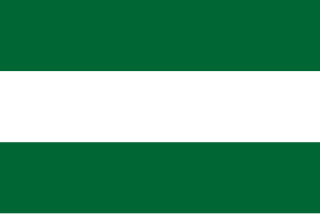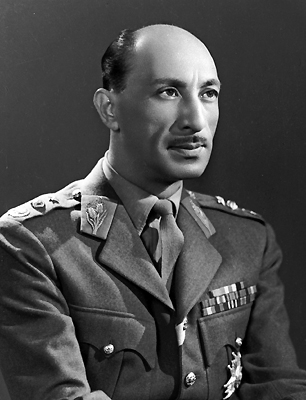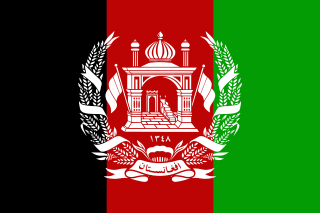
Afghanistan, officially the Islamic Emirate of Afghanistan, is a landlocked country located at the crossroads of Central Asia and South Asia. It is bordered by Pakistan to the east and south, Iran to the west, Turkmenistan to the northwest, Uzbekistan to the north, Tajikistan to the northeast, and China to the northeast and east. Occupying 652,864 square kilometers (252,072 sq mi) of land, the country is predominantly mountainous with plains in the north and the southwest, which are separated by the Hindu Kush mountain range. Kabul is the country's capital and largest city. Afghanistan's population is about 35 million.

The Durrani Empire, colloquially known as the Afghan Empire, or the Sadozai Kingdom, was an Afghan empire founded by the Durrani tribe of Pashtuns under Ahmad Shah Durrani in 1747, which spanned parts of Central Asia, the Iranian plateau, and the Indian subcontinent. At its peak, it ruled over present-day Afghanistan, much of Pakistan, parts of northeastern and southeastern Iran, eastern Turkmenistan, and northwestern India. Next to the Ottoman Empire, the Durrani Empire is considered to be among the most significant Islamic empire of the second half of the 18th century.

Mohammad Zahir Shah was the last King of Afghanistan, reigning from 8 November 1933 until he was deposed on 17 July 1973. Ruling for 40 years, Zahir Shah was the longest-serving ruler of Afghanistan since the foundation of the Durrani Empire in the 18th century.

Osama bin Laden was a Saudi Arabian–born Islamist dissident and militant leader who was the founder and first general emir of al-Qaeda. Ideologically a pan-Islamist, Bin Laden participated in the Afghan mujahideen against the Soviet Union, and supported the Bosnian mujahideen during the Yugoslav Wars. Opposed to the United States' foreign policy in the Middle East, Bin Laden declared war on the U.S. in 1996 and advocated attacks targeting US assets in various countries, and supervised the execution of September 11 attacks inside the U.S. in 2001.

The Taliban, which also refers to itself by its state name, the Islamic Emirate of Afghanistan, is an Afghan political and militant movement with an ideology comprising elements of Pashtun nationalism and the Deobandi movement of Islamic fundamentalism. It ruled approximately 75% of Afghanistan from 1996 to 2001, before it was overthrown by an American invasion after the September 11 attacks carried out by the Taliban's ally al-Qaeda. The Taliban recaptured Kabul in August 2021 following the departure of coalition forces, after 20 years of Taliban insurgency, and now controls the entire country. The Taliban government is not recognized by any country and has been internationally condemned for restricting human rights, including women's rights to work and have an education.

The Democratic Republic of Afghanistan, later known as the Republic of Afghanistan, was the Afghan state between 1978 and 1992. It was bordered by Pakistan to the east and south, by Iran to the west, by the Soviet Union to the north, and by China to the northeast. Established by the People's Democratic Party of Afghanistan (PDPA) following the Saur Revolution in April 1978, it came to rely heavily on the Soviet Union for financial and military assistance and was therefore widely considered to be a Soviet satellite state. The PDPA's rise to power is seen as the beginning of the ongoing Afghan conflict, and the majority of the country's years in existence were marked by the Soviet–Afghan War. It collapsed by the end of the First Afghan Civil War in April 1992, having lasted only four months after the dissolution of the Soviet Union.

The Soviet–Afghan War took place in the Democratic Republic of Afghanistan from December 1979 to February 1989. Marking the beginning of the protracted Afghan conflict, it saw the Soviet Union and the Afghan military fight against the rebelling Afghan mujahideen. While they were backed by various countries and organizations, the majority of the mujahideen's support came from Pakistan, the United States, the United Kingdom, China, Iran, and the Arab states of the Persian Gulf, in addition to a large influx of foreign fighters known as the Afghan Arabs. American and British involvement on the side of the mujahideen escalated the Cold War, ending a short period of relaxed Soviet Union–United States relations. Combat took place throughout the 1980s, mostly in the Afghan countryside, as most of the country's cities remained under Soviet control. The conflict resulted in the deaths of one to three million Afghans, while millions more fled from the country as refugees; most externally displaced Afghans sought refuge in Pakistan and in Iran. Between 6.5 and 11.5% of Afghanistan's erstwhile population of 13.5 million people is estimated to have been killed over the course of the Soviet–Afghan War. The decade-long confrontation between the mujahideen and the Soviet and Afghan militaries inflicted grave destruction throughout Afghanistan and has also been cited by scholars as a significant factor that contributed to the dissolution of the Soviet Union in 1991; it is for this reason that the conflict is sometimes referred to as "the Soviet Union's Vietnam" in retrospective analyses.

Hamid Karzai is an Afghan statesman who served as the fourth president of Afghanistan from July 2002 to September 2014, including as the first elected president of the Islamic Republic of Afghanistan from December 2004 to September 2014. He previously served as Chairman of the Afghan Interim Administration from December 2001 to July 2002. He is the chief (khān) of the Popalzai Durrani tribe of Pashtuns in Kandahar Province.

Mullah Muhammad Omar was an Afghan militant leader and cleric who founded the Taliban in 1994. During the Third Afghan Civil War, the Taliban fought the Northern Alliance and took control of most of the country, establishing the First Islamic Emirate for which Omar began to serve as Supreme Leader in 1996. Shortly after al-Qaeda carried out the September 11 attacks, the Taliban government was toppled by an American invasion of Afghanistan, prompting Omar to go into hiding. He successfully evaded capture by the American-led coalition before dying in 2013 from tuberculosis.

The Third Battle of Panipat took place on 14 January 1761 between the Maratha Confederacy and the invading army of the Durrani Empire. The battle took place in and around the city of Panipat, approximately 97 kilometres (60 mi) north of Delhi. The Afghans were supported by three key allies in India: Najib ad-Dawlah who persuaded the support of the Rohilla chiefs, elements of the declining Mughal Empire, and most prized the Oudh State under Shuja-ud-Daula. The Maratha army was led by Sadashivrao Bhau, who was third-highest authority of the Maratha Confederacy after the Chhatrapati and the Peshwa. The bulk of the Maratha army was stationed in the Deccan Plateau with the Peshwa.

Mohammad Ashraf Ghani Ahmadzai is an Afghan former politician, academic, and economist who served as the president of Afghanistan from September 2014 until August 2021, when his government was overthrown by the Taliban.

The Second Anglo-Afghan War was a military conflict fought between the British Raj and the Emirate of Afghanistan from 1878 to 1880, when the latter was ruled by Sher Ali Khan of the Barakzai dynasty, the son of former Emir Dost Mohammad Khan. The war was part of the Great Game between the British and Russian empires.

The Emirate of Afghanistan, known as the Emirate of Kabul until 1855, was an emirate in Central Asia and South Asia that encompassed present-day Afghanistan and parts of present-day Pakistan. The emirate emerged from the Durrani Empire, when Dost Mohammad Khan, the founder of the Barakzai dynasty in Kabul, prevailed.

The War in Afghanistan was a prolonged conflict lasting from 2001 to 2021. It began with the invasion by a United States-led coalition under the name Operation Enduring Freedom as a direct response to the September 11 attacks, toppling the Taliban-ruled Islamic Emirate and establishing the Islamic Republic three years later. The Taliban and its allies were expelled from major population centers by US-led forces supporting the anti-Taliban Northern Alliance; Osama bin Laden, meanwhile, relocated to neighboring Pakistan. The conflict officially ended with the 2021 Taliban offensive, which overthrew the Islamic Republic, and re-established the Islamic Emirate. It was the longest war in the military history of the United States, surpassing the length of the Vietnam War (1955–1975) by approximately six months.

The Kingdom of Afghanistan was a monarchy in Central Asia that was established in 1926 as a successor state to the Emirate of Afghanistan. It was proclaimed by its first king, Amanullah Khan, seven years after he acceded to the throne. The monarchy ended in the 1973 Afghan coup d'état.

The Afghan conflict is a term that refers to the series of events that have kept Afghanistan in a near-continuous state of armed conflict since the 1970s. Early instability followed the collapse of the Kingdom of Afghanistan in the largely non-violent 1973 coup d'état, which deposed Afghan monarch Mohammad Zahir Shah in absentia, ending his 40-year-long reign. With the concurrent establishment of the Republic of Afghanistan, headed by Mohammad Daoud Khan, the country's relatively peaceful and stable period in modern history came to an end. However, all-out fighting did not erupt until after 1978, when the Saur Revolution violently overthrew Khan's government and established the Democratic Republic of Afghanistan. Subsequent unrest over the radical reforms that were being pushed by the then-ruling People's Democratic Party of Afghanistan (PDPA) led to unprecedented violence, prompting a large-scale pro-PDPA military intervention by the Soviet Union in 1979. In the ensuing Soviet–Afghan War, the anti-Soviet Afghan mujahideen received extensive support from Pakistan, the United States, and Saudi Arabia in a joint covert effort that was dubbed Operation Cyclone.

Rashid Khan Arman is an Afghan international cricketer and captain of the Afghanistan national team in the T20I format. In franchise leagues, he plays for Gujarat Titans in the Indian Premier League (IPL), Adelaide Strikers in Australia's Big Bash League (BBL), Lahore Qalandars in the Pakistan Super League (PSL), Band-e-Amir Dragons in Afghanistan's Shpageeza Cricket League and MI New York in Major League Cricket (MLC). He bowls right-arm leg spin and is an aggressive right-handed batsman.

Mullah Hibatullah Akhundzada, also spelled Haibatullah Akhunzada, is an Afghan cleric who is the supreme leader of Afghanistan in the internationally unrecognized Taliban regime. He has led the Taliban since 2016, and came to power with its victory over U.S.-backed forces in the 2001–2021 war. A highly reclusive figure, he has almost no digital footprint except for an unverified photograph and several audio recordings of speeches.

The United States Armed Forces completed their withdrawal from Afghanistan on 30 August 2021, marking the end of the 2001–2021 war. In February 2020, the Trump administration and the Taliban signed the United States–Taliban deal in Doha, Qatar, which stipulated fighting restrictions for both the US and the Taliban, and in return for the Taliban's counter-terrorism commitments, provided for the withdrawal of all NATO forces from Afghanistan by 1 May 2021. Following the deal, the US dramatically reduced the number of air attacks on the Taliban to the detriment of the Afghan National Security Forces (ANSF), and its fight against the Taliban insurgency.

On 15 August 2021, Afghanistan's capital city of Kabul was captured by the Taliban after a major insurgent offensive that began in May 2021. It was the final action of the War in Afghanistan, and marked a total victory for the Taliban. This led to the overthrowing of the Islamic Republic of Afghanistan under President Ashraf Ghani and the reinstatement of the Islamic Emirate of Afghanistan under the control of the Taliban.


















